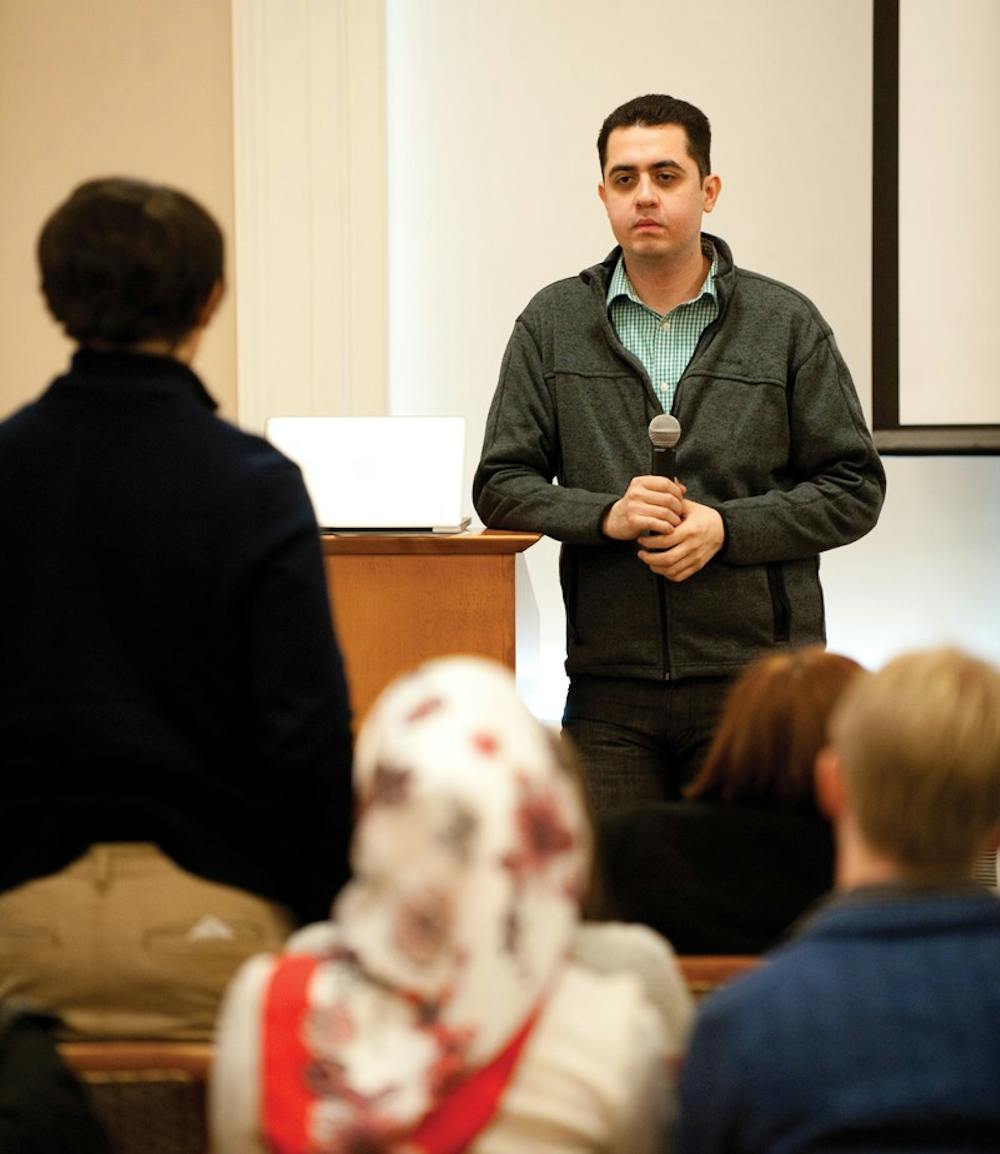Students, faculty and Syrian revolutionaries gathered together Friday afternoon in the Newcomb Gallery for a discussion of the ongoing conflict in Syria. Project Nur , a student-led initiative advocating engagement and respect between Muslims and non- Muslims, hosted the event. The forum was Project Nur’s first on Grounds — the initiative was started just last semester. “We felt strongly that the situation in Syria merited more attention than it typically receives,” said third-year College Student Grace Fetty , the group’s president.
The event included social activists, journalists and even revolutionaries in Syria who were reached through Skype.
“Today you will learn about Syrians and their suffering,” Assistant Arabic Prof. Hanadi Al-Samman said to start the conversation. She began by explaining that Syria is in the second year of a conflict that began on March 15, 2011. The revolts started, she said, when citizen began protesting the government’s detainment of a group of 12- to 15-year-old children who had written on their school’s walls, “The people want to tumble down the regime.”
What began as a widespread demonstration has now turned into a bloody clash between Syrian President Bashar al-Assad and various rebel groups, Al-Samman said. At least 60,000 citizens have died during the conflict and 150,000 have been imprisoned , she added. “Many more have disappeared, meaning we are not sure if they are alive or dead,” Al-Samman said.
“I estimate that the number is much higher than 60,000.” Al-Samman said she wanted to dispel what she saw as several common myths about the Syrian revolution: the Assad regime is not protecting minorities and the conflict is not religious in nature. “There are no Islamic elements [of the conflict],” she said. “During the last election, the Muslim Brotherhood only received 15 percent of the vote.”
Later in the event, activist Mohamed Al-Barden shared his experience with the Syrian revolution. Formerly an engineer from a wealthy family, he left his home country to continue social activism in the U.S., raising awareness of the situation in Syria .
Al-Barden said creativity and innovation are the tools of this revolution, opposing the idea of military intervention in favor of nonviolence. “We were able to drive the dictatorship crazy by launching balloons and flags, distributing flyers and playing revolution songsthroughout the cities,” he said.
Al-Barden was joined by fellow activist Osama Nasser via video link . Nasser has been arrested numerous times and is now no longer allowed toleave the country.







